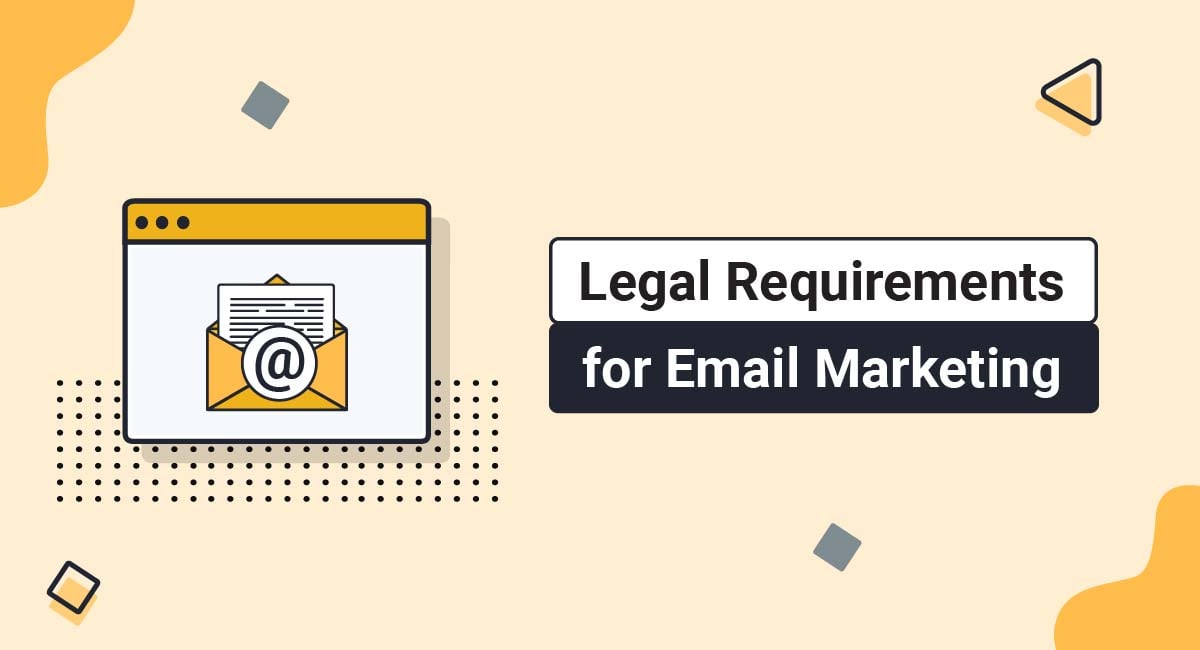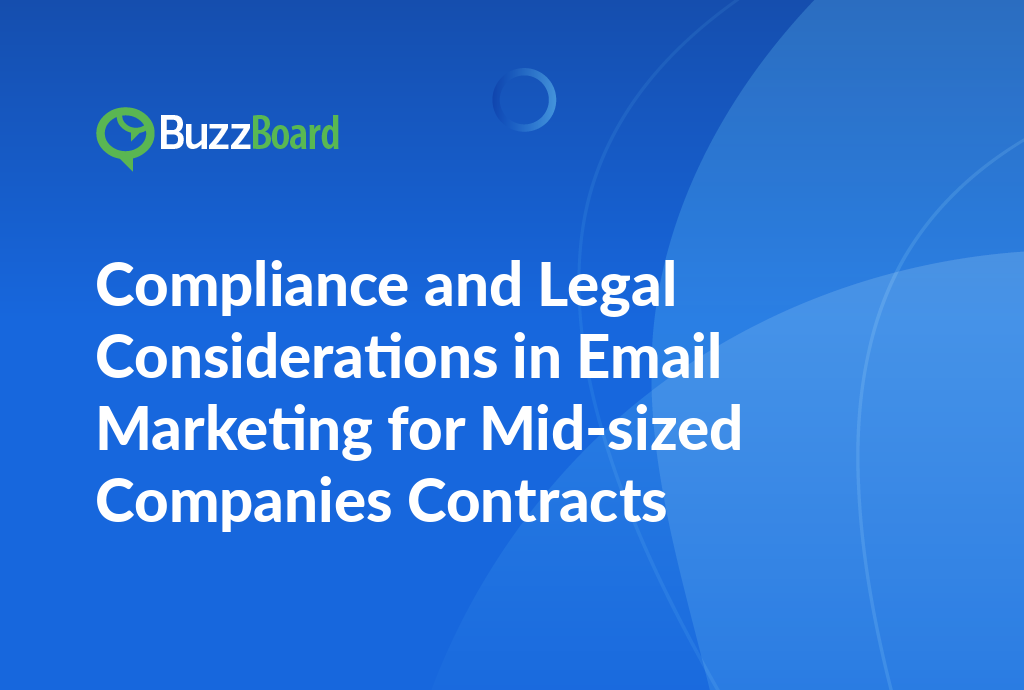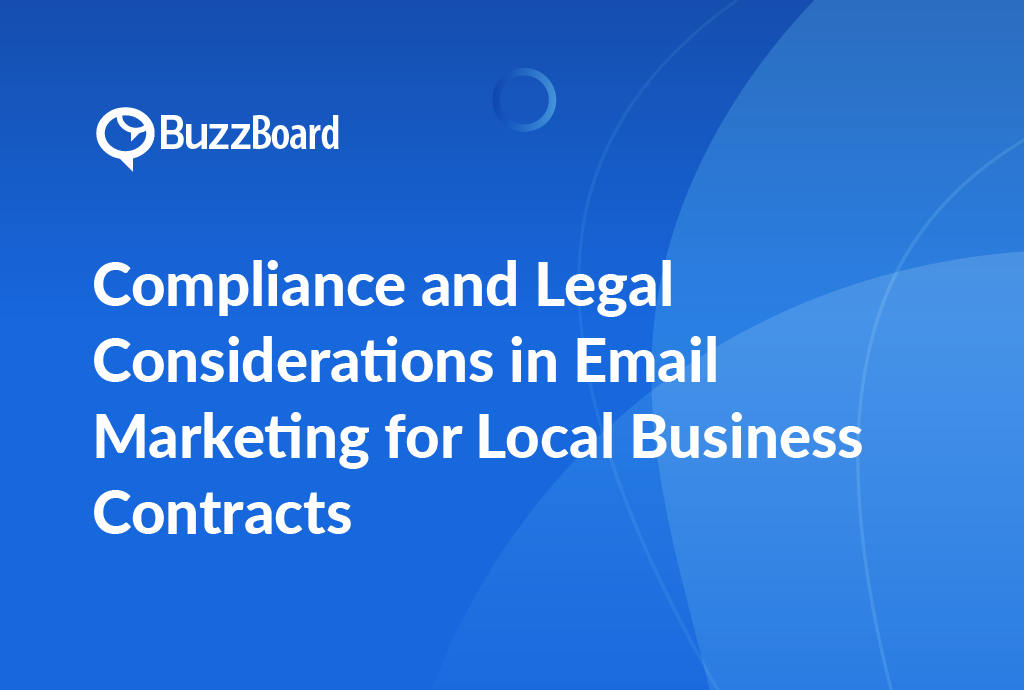Email marketing can boost business growth. But legal issues arise.
Compliance is crucial to avoid penalties. Email marketing laws protect consumers from spam and misuse. Understanding these regulations ensures your campaigns stay lawful. This blog will explore key legal considerations for email marketing. We’ll cover permission-based marketing, data protection, and anti-spam laws.
Knowing these rules helps maintain trust and avoid legal trouble. Dive in to learn how to keep your email marketing compliant and effective.
Introduction To Email Marketing Laws
Email marketing is an effective tool for businesses. But there are rules to follow. These laws protect recipients and set fair practices.
Understanding these laws is crucial. It helps avoid fines and keeps trust with subscribers.
Importance Of Compliance
Compliance with email marketing laws is vital. It ensures your business operates legally. Following the rules can help you avoid penalties.
Benefits of Compliance:
- Builds trust with customers.
- Prevents legal issues.
- Keeps your emails out of spam folders.
Non-compliance can lead to hefty fines. It can damage your brand’s reputation. Always stay updated with the latest regulations.
Common Legal Risks
Several risks come with email marketing. Knowing them helps in staying compliant.
Key Risks:
| Risk | Description |
|---|---|
| Unsolicited Emails | Sending emails without permission. This is often seen as spam. |
| Incomplete Information | Not providing clear sender details. This can confuse recipients. |
| Failure to Honor Opt-Outs | Not respecting unsubscribe requests. This is a major violation. |
Always get consent before sending emails. Provide a clear opt-out option. Clearly state who the email is from.
Understanding Can-spam Act
Understanding the CAN-SPAM Act is crucial for anyone involved in email marketing. This law sets the rules for commercial emails and messages. It gives recipients the right to stop emails from being sent to them. It spells out tough penalties for violations. Knowing the key aspects of this law can help you stay compliant and avoid hefty fines.
Key Requirements
The CAN-SPAM Act has several key requirements. First, don’t use false or misleading header information. The “From,” “To,” and routing information must be correct. Second, don’t use deceptive subject lines. The subject line must reflect the content of the message. Third, identify the message as an ad. Clearly state that your email is an advertisement. Fourth, tell recipients where you’re located. Your email must include your valid physical postal address. Fifth, tell recipients how to opt out of receiving future emails. Include a clear and easy way for people to opt out. Lastly, honor opt-out requests promptly. You must process opt-out requests within 10 business days.
Penalties For Non-compliance
Failing to comply with the CAN-SPAM Act can result in severe penalties. Each separate email in violation of the CAN-SPAM Act is subject to penalties. The fines can be up to $43,280 per email. This makes compliance not just a legal necessity but also a financial one. In serious cases, additional penalties can be applied. These include imprisonment for fraudulent practices. Ensuring compliance protects your business from these harsh penalties.
Gdpr And Email Marketing
Email marketing is a powerful tool for businesses. But it comes with legal responsibilities. The General Data Protection Regulation (GDPR) impacts how businesses handle email marketing. Understanding its requirements is crucial for compliance.
Core Principles
The GDPR outlines several core principles for email marketing. The most important is consent. You must get clear, affirmative consent from individuals before sending marketing emails. This means no pre-ticked boxes or default opt-ins.
Another key principle is transparency. Businesses must inform individuals about how their data will be used. This information should be clear and easily accessible.
Under GDPR, individuals have the right to access their data. They can request to see the personal information a business holds about them. They also have the right to be forgotten. This means they can ask for their data to be deleted.
Impact On Email Practices
GDPR has changed email marketing practices significantly. First, businesses must have a double opt-in process. After someone signs up, they receive a confirmation email. They must click a link to confirm their subscription.
Secondly, every marketing email must include an unsubscribe option. This gives recipients an easy way to opt-out of future emails. The process should be simple and immediate.
Businesses must also maintain accurate records. They need to document consent and keep track of when and how it was obtained. This helps prove compliance if questioned.
Lastly, email marketing lists should be regularly cleaned. Remove inactive subscribers and those who have withdrawn consent. This ensures you only send emails to those who want to receive them.
Obtaining Consent
Obtaining Consent is a fundamental aspect of email marketing that ensures your audience willingly receives your communications. Without proper consent, your emails could be marked as spam, leading to legal issues and damage to your brand reputation. Here, we delve into the different types of consent and best practices to obtain it effectively.
Types Of Consent
Understanding the types of consent helps you comply with regulations and build trust. Generally, there are two types:
- Explicit Consent: This is when a user actively agrees to receive emails. It involves checking a box or signing up through a form.
- Implicit Consent: This occurs when a user provides their email during a transaction or registration, implying they agree to receive related emails.
Best Practices
Following best practices ensures your email marketing remains compliant and effective. Here are some key practices:
- Use Clear Language: Clearly state what users are signing up for. Avoid jargon and complex terms.
- Double Opt-In: Send a confirmation email after sign-up. This ensures the email belongs to the person who signed up.
- Provide Easy Opt-Out: Always include an easy way for users to unsubscribe. This builds trust and keeps your list clean.
- Document Consent: Keep records of how and when consent was obtained. This is crucial for legal compliance.
By adhering to these practices, you not only comply with legal standards but also enhance your relationship with your audience.
Managing Subscriber Data
Managing subscriber data is crucial for email marketing compliance. You need to ensure that you collect, store, and secure data properly. This helps protect your subscribers’ privacy and keeps your email marketing efforts within legal boundaries.
Data Collection
Collect only the data you need. Ask for permission before adding someone to your list. Use clear and straightforward language in your sign-up forms. Inform subscribers about what they will receive and how often.
Data Storage And Security
Store subscriber data securely. Use encrypted databases to protect information. Regularly update your security protocols. Limit access to sensitive data to authorized personnel only. This helps prevent data breaches and keeps your subscribers’ information safe.

Credit: www.termsfeed.com
Unsubscribe Mechanisms
Unsubscribe mechanisms are a vital part of email marketing. They ensure compliance with legal requirements and maintain good relationships with your audience. This section explores how to design an effective opt-out process and handle unsubscribe requests efficiently.
Designing An Easy Opt-out
Designing an easy opt-out process is crucial for user satisfaction. Here are some tips:
- Clear Placement: Place the unsubscribe link in a visible location, usually at the end of the email.
- Simple Language: Use straightforward language like “Unsubscribe” or “Opt-Out.”
- Single Click: Ensure the process requires only a single click. Avoid complex steps.
Below is an example of a well-designed opt-out link:
Unsubscribe
By following these guidelines, you can make the opt-out process user-friendly and compliant.
Handling Unsubscribe Requests
Handling unsubscribe requests promptly is essential. Here are some best practices:
- Immediate Action: Process unsubscribe requests immediately. Delays can annoy users.
- Confirmation Email: Send a confirmation email stating that the request has been processed.
- Update Lists: Ensure your mailing list is updated to avoid sending emails to unsubscribed users.
Here is an example of a confirmation email template:
Dear [User],
You have successfully unsubscribed from our mailing list. If this was a mistake, you can resubscribe here: [Resubscribe Link]
Best regards,
[Your Company Name]
By implementing these practices, you can manage unsubscribe requests efficiently and maintain user trust.
Email Content Regulations
Email content regulations are essential for any email marketing campaign. These rules ensure your emails are compliant with legal standards. Failing to follow them can lead to penalties. This section will discuss content restrictions and required disclosures.
Content Restrictions
Email marketers must follow specific content restrictions. These rules help maintain trust and transparency. Here are some important points:
- Avoid misleading subject lines: Your subject line should match the content of the email.
- No deceptive information: All information must be accurate and truthful.
- Include a physical address: Your email must include a valid postal address.
Ensure your email does not contain prohibited content. This includes false promises and misleading offers. Following these rules helps you build credibility.
Required Disclosures
Required disclosures are mandatory elements in your emails. These elements protect consumers and provide transparency. Here is what you need to include:
- Clear identification: Identify your email as an advertisement or promotional content.
- Opt-out mechanism: Provide a simple way for recipients to unsubscribe.
- Contact information: Include your business name and contact details.
Providing these disclosures ensures your email marketing is compliant. It also builds trust with your audience.

Credit: www.buzzboard.ai
International Email Marketing Laws
Email marketing is a powerful tool for reaching a global audience. However, every country has its own set of rules for email marketing. Failing to comply with these laws can lead to serious consequences. Understanding international email marketing laws is crucial for your business.
Navigating Different Jurisdictions
Each country has its own legal framework for email marketing. For example, the United States follows the CAN-SPAM Act. This law requires you to provide a clear way for recipients to opt-out. Canada has its own rules under the CASL (Canada’s Anti-Spam Legislation). This law is stricter and requires explicit consent before sending emails.
The European Union has the GDPR (General Data Protection Regulation). This law focuses on data protection and privacy. It applies to all businesses that handle data from EU citizens. Violations can lead to hefty fines. Therefore, knowing the laws of each jurisdiction is vital.
Harmonizing Compliance
Managing compliance across multiple jurisdictions can be complex. A good strategy is to adopt the strictest rules as your standard. This approach ensures that you meet all legal requirements. For example, always get explicit consent before sending marketing emails. Provide a clear and easy opt-out option in every email.
Here is a basic table to help you understand the key requirements:
| Country | Key Requirement |
|---|---|
| United States | Opt-out option |
| Canada | Explicit consent |
| European Union | Data protection |
Using this table can help you keep track of the different rules. Remember, the goal is to respect your audience’s privacy. This builds trust and improves your email marketing success.
Role Of Email Service Providers
Email service providers (ESPs) play a crucial role in email marketing. They handle the technical aspects of sending bulk emails. They also help ensure compliance with legal regulations. By using an ESP, businesses can manage their campaigns more efficiently. It’s important to understand the responsibilities and selection criteria for ESPs.
Service Provider Responsibilities
ESPs must maintain secure email servers. They should prevent unauthorized access to user data. Ensuring data privacy is a top priority. ESPs also need to manage opt-in and opt-out requests. They should provide tools for easy subscription management.
Monitoring email deliverability is another key task. ESPs should track bounce rates and spam complaints. They must comply with anti-spam laws like CAN-SPAM and GDPR. This includes providing unsubscribe links in every email. Regular audits and updates are necessary to stay compliant.
Choosing A Compliant Provider
Pick an ESP that follows all relevant laws. Look for providers that offer GDPR compliance tools. They should also support CAN-SPAM and other regional regulations. Check if they have a robust privacy policy.
Consider the provider’s reputation in the industry. Read reviews and testimonials from other users. Ensure they have a good track record of deliverability. Look for features that support compliance, like double opt-in and data encryption.
Lastly, evaluate their customer support. A responsive support team can help resolve issues quickly. They can also guide you in maintaining compliance. Choose a provider that offers comprehensive resources and training.
Maintaining Compliance
Maintaining compliance in email marketing is crucial for protecting your business. It also ensures you respect your subscribers’ rights. Being compliant reduces the risk of legal issues. This section covers two key aspects: regular audits and staying updated with laws.
Regular Audits
Regular audits help identify potential issues in your email campaigns. They ensure your emails follow legal requirements. Conduct audits on a scheduled basis. Check for proper consent from subscribers. Verify that unsubscribe links are functional. Review email content for compliance with laws. Audits keep your email practices in check and compliant.
Staying Updated With Laws
Email marketing laws change frequently. It’s vital to stay updated with these changes. Follow reputable sources for legal updates. Subscribe to newsletters from legal experts. Attend webinars and workshops on email marketing laws. Ensure your team is aware of new regulations. Staying informed helps you adapt and remain compliant.

Credit: www.dewitt.law
Frequently Asked Questions
What Is The Can-spam Act?
The CAN-SPAM Act is a law that sets rules for commercial emails. It protects consumers.
Why Is Consent Important In Email Marketing?
Consent ensures recipients agree to receive emails. This builds trust and complies with laws.
How Can I Avoid Being Marked As Spam?
Use clear subject lines, avoid misleading content, and get permission before sending emails.
What Are Gdpr Requirements For Email Marketing?
GDPR requires explicit consent, clear privacy policies, and the option to unsubscribe easily.
How Often Should I Update My Email List?
Regularly update your email list. Remove inactive or unresponsive contacts to maintain engagement.
Conclusion
Email marketing has legal rules to follow. Respect privacy laws to avoid trouble. Always get permission before sending emails. Make sure to include an unsubscribe option. Protect customer data from breaches. Regularly update your email list. Stay informed about the latest regulations.
This keeps your email marketing compliant and trustworthy. Following these guidelines helps build customer trust. Legal considerations ensure your campaigns are effective and safe. Happy emailing!


Leave a Reply